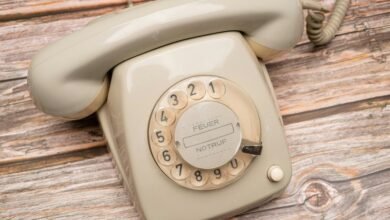Cross-Check Caller Identity Using 3497237224, 3807480513, 3533635293, 3505517460, 3533396211, 3511577632

In today’s digital age, the verification of caller identities has become paramount to safeguard against potential scams and identity theft. The numbers 3497237224, 3807480513, 3533635293, 3505517460, 3533396211, and 3511577632 warrant particular attention. Employing caller verification tools and number lookup services can provide crucial insights into the legitimacy of these callers. Understanding the implications of these findings is essential for enhancing personal security and maintaining trust in communications. What factors should one consider when evaluating these numbers?
Importance of Verifying Caller Identities
The verification of caller identities is a critical component in safeguarding communication integrity and security.
Effective caller verification processes mitigate the risks of identity theft, which can result in significant financial and emotional distress for individuals.
Tools and Resources for Cross-Checking Numbers
Caller verification is not only about recognizing the importance of identity checks but also involves employing specific tools and resources that facilitate effective cross-checking of phone numbers.
Caller verification tools and number lookup services are essential for obtaining accurate information regarding unknown callers. These resources enable users to verify identities, ascertain credibility, and protect themselves from potential scams or fraudulent activities, thereby enhancing personal security.
Analyzing the Specific Numbers: 3497237224, 3807480513, 3533635293, 3505517460, 3533396211, 3511577632
Five specific phone numbers—3497237224, 3807480513, 3533635293, 3505517460, 3533396211, and 3511577632—merit detailed analysis to uncover their origins and potential implications for user interactions.
Investigating their number origins reveals distinct geographic and service provider affiliations, while examining call patterns can highlight frequency and context of use.
Such insights are essential for informed decision-making in an increasingly interconnected communication landscape.
Best Practices for Ensuring Personal Security
While navigating the complexities of modern communication, individuals must adopt best practices for ensuring personal security.
Implementing effective call screening techniques can significantly reduce the risk of identity theft and fraudulent activities.
Prioritizing personal privacy through secure communication channels and educating oneself about potential threats is essential for robust fraud prevention.
These measures empower individuals to maintain control over their personal information in an increasingly interconnected world.
Conclusion
In an era where trust in communication is increasingly fragile, the importance of verifying caller identities cannot be overstated. Each number, such as 3497237224 or 3807480513, harbors potential risks that could lead to identity theft or fraud. As individuals evaluate the credibility of these calls, they must remain vigilant, armed with the right tools and practices. The next ring could be a lifeline or a trap—will you be prepared to discern the difference?





